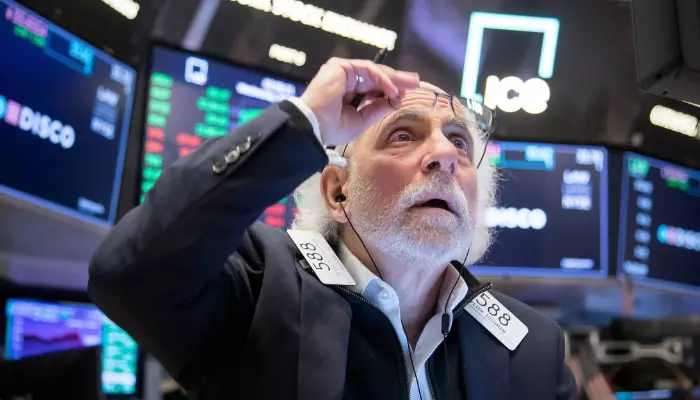
Indicele S&P 500 va scădea încă 10% înainte de actuala recesiune economică, ceea ce alimentează piața descendentă pentru acțiunile americane, a declarat directorul de investiții al Morgan Stanley Wealth Management.
Directorul de informații, Lisa Shalett, a declarat că șansele ca SUA să aibă două trimestre consecutive de creștere economică negativă s-au dublat de când Rezerva Federală a majorat ratele dobânzilor cu 75 de puncte de bază pe 15 iunie, ceea ce face ca o scădere a pieței bursiere să fie mai probabilă.
„Înăsprirea accelerată a politicii monetare de către Fed dublează șansele unei recesiuni”, a declarat Shalett în raportul său săptămânal de luni. „Minorul pieței descendente este probabil la 5-10% distanță.”
Indicele S&P 500 a intrat într-o piață descendentă după ce a scăzut cu peste 201 de miliarde de dolari până în prezent în acest an, pe măsură ce investitorii s-au confruntat cu creșterea inflației, creșterea ratelor dobânzilor și riscurile de recesiune. Creșterile recente ale indicilor bursieri americani par să se estompeze marți, pe măsură ce o vânzare masivă de acțiuni ale marilor companii tehnologice i-a tras în jos cu 2,01%.
Întrucât investitorii nu au asimilat încă noua poziție de înăsprire a Fed, piața va scădea încă 10% înainte de a atinge un minim, a declarat Shalett. Rezerva Federală a majorat ratele dobânzilor cu 75 de puncte de bază luna aceasta, cea mai mare majorare de rate din 1994.
„Previziunile consensuale ale analiștilor pentru S&P 500 au continuat să crească, în timp ce revizuirile câștigurilor au devenit negative, iar previziunile de creștere a PIB-ului au fost revizuite în jos”, a spus ea.
Shalett a menționat că indicele a crescut cu 4,7% după ultima mișcare a Fed, chiar dacă creșterea ratelor dobânzilor a avut tendința de a declanșa o vânzare masivă de acțiuni.
Însă, deși o recesiune indusă de Fed pare din ce în ce mai probabilă, Shalett a spus că investitorii nu ar trebui să-și facă griji că aceasta reflectă anul 2008, când indicele S&P 500 a scăzut cu peste 201 de trilioane de dolari într-o săptămână. Recesiunile legate de inflație tind să aibă un impact mult mai mic asupra randamentelor acțiunilor decât recesiunile legate de credit, a spus ea.
„Această recesiune va fi determinată de inflație, nu de credit”, a adăugat Shalett. „Aceasta înseamnă că randamentele de la vârf la minim ar putea scădea cu mai puțin de 15%, deoarece prețurile nominale amortizează volume reale mai slabe.”
Află mai multe:
-
-
-
-
Revizuirea cardului Delta Skymiles® Reserve American Express – Vezi mai multe.
-
AmEx se concentrează pe experiența clienților cu un nou cont curent și o aplicație reproiectată
-
Discover it® Rewards cardul de recompense, vezi cum funcționează
